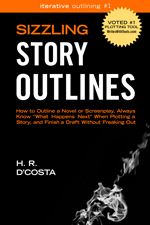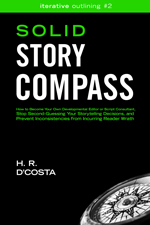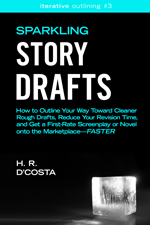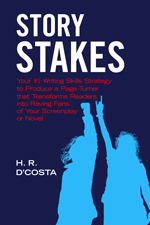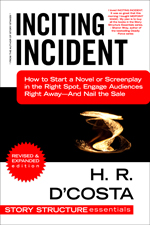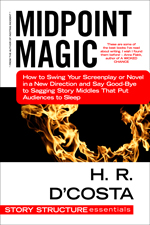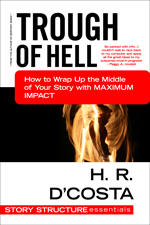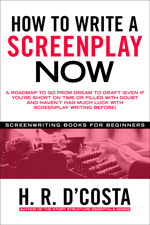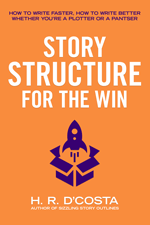This Means War, starring Reese Witherspoon, Chris Pine and Tom Hardy had a lot going for it in terms of actor appeal and charisma.
Reese is usually a romantic comedy gem, having the ability to make fun of herself and still look adorable. I knew Chris Pine was going to be a star all the way back in 2006 when I saw him in this offbeat comedy, Blind Dating. Besides his role in Inception, Tom Hardy was pretty much an unknown entity to me. I can now report he sure can pull off wearing the suit.
With three gorgeous–and talented–actors, what could go wrong?
Despite all of the appeal of its stars, This Means War only grossed $55 million at the box office (domestic). Disappointing, to say the least, especially when it was released around Valentine’s Day weekend.
With its high concept hybrid premise–two spies fall in love with the same girl and compete with each other for her affection–and with its extremely likeable stars, you’d think the studio had crafted the perfect date night movie.
But high concept isn’t enough, at least not enough to produce a blockbuster movie. To write a blockbuster, your movie has to have legs. And for all the allure of its blue-eyed stars, This Means War didn’t have ’em.
Let’s take a look to see why not (note: spoilers ahead!):
Kooky doesn’t automatically create comedy
In the movie, Reese Witherspoon plays Lauren Scott, an unlucky-in-love gal, who moved from Atlanta to LA to be with a guy…whom she eventually caught cheating on her. Thanks to her best friend, played by comedienne Chelsea Handler, Lauren is in the enviable position of choosing between two hot guys, FDR (Chris Pine) and Tuck (Tom Hardy). But Chelsea’s role as Lauren’s crazy sidekick didn’t work so well onscreen, although on paper it probably looked like a really good idea.
It just seemed that Chelsea was being Chelsea–sprouting off a continuous stream of one liners without pausing for breath (or moving many facial muscles)…which would’ve worked better if she had been playing a self-aware version of herself a la James Vanderbeek in the the TV comedy Don’t Trust the ***** in Apt 23B. That would’ve been funny.
Plus, she was so busy pushing the envelope humor wise, her character neglected to push the plot forward. Sure, she signed Lauren up for the online dating site which scored Lauren a date with Tuck and she’s the one who convinced Lauren that it was okay to date two guys at the same time.
Without Chelsea’s encouragement, FDR and Tuck would’ve never been fighting over Lauren. But because Lauren’s scenes with Chelsea seemed forced, the plot points Chelsea actually did contribute to felt forced too, when they should’ve come across as organic.
Having a “zany” sidekick character, even one played by a real life comedienne, doesn’t automatically mean that your comedy is going to make your audience laugh.
A good example of a crazy and yet compelling rom-com sidekick is Zooey Deschanel in Failure to Launch. She’s weird, but endearingly so. And Kristen Wiig’s character, Annie, in Bridesmaids is offbeat and yet authentic. Use them as inspiration for your own comedy sidekicks.
Phone overload
Movies whose pacing are ruined through too many phone conversations comes up A LOT on Scribe Meets World. Unfortunately, This Means War was no exception. Most of the phone conversations were between Lauren and Chelsea, with Lauren dissecting her romances with FDR and Tuck.
It’s much easier to have two people call each other than to come up with an efficient way to get them in the same place at the same time where they can have their conversation in person. But phone conversations just don’t have the same energy as face-to-face conversations. Phone conversations can sometimes bring the momentum of your movie to a halt, as they did in One for the Money. Most of the time they suck just because the two actors can’t interact with–and play off of–each other.
For example, if two characters are getting into a verbal sparring match, maybe one of them will playfully punch the other…which could escalate into a full-fledged confrontation, boding ill for the future of these two friends. But if they were only talking on the phone, you’d just see them get frustrated (a little face reddening, maybe a door slamming) and that’s it. You’ve lost an opportunity to add an extra dose of conflict to the scene.
Try your best to eliminate most of the phone conversations in your script. Your screenplay will be all the better for it. You can’t get rid of all of them, but if you get rid of most of them, you’ll be in good shape. Remember in Crazy Stupid Love, how Ryan Gosling told Steve Carell, “Be better than the Gap, Cal. Be better than the Gap?”
Be better than the phone, aspiring writer. Be better than the phone.
Casting doesn’t equal character
This Means War is a prime example of why you can’t rely on casting to save your script. Reese Witherspoon is America’s sweetheart. She’s smart, classy, gorgeous and likeable. But Chris Pine and Tom Hardy weren’t fighting over Reese–they were fighting over her character, Lauren Scott.
My question is: why?
There’s nothing in the movie which showed why two hot men would both fall in love with Lauren. Her first impression on the audience at least was not very memorable–you met her at work where her colleague asked for the weekend off to go visit an alpaca farm with her boyfriend. Translation: poor Lauren is always alone. This is followed by Lauren running into her muscled boyfriend who has a fiancée (they even bicycle together), and a mildly funny incident at a sushi place.
Lauren is devastated by running into her ex–but why? We soon learn that she moved to LA to be with him, and then he cheated on her with a Pilates instructor. Why is she so broken up about him? Why does she turn into a mumbling pathetic mess who makes up a false boyfriend to impress her ex when her ex cheated on her? Shouldn’t she have been searching for something to pelt him with instead? Is she that pathetic?
When she first meets FDR at a movie rental store (they still have those?), Lauren seems kind of shrewy and uptight. Granted, she totally pegged FDR as a rather lazy Lothario who isn’t particularly inventive about trying to pick up a lady.
After she firmly kibboshes his plans, why does he pursue her? Just for the thrill of the chase, perhaps. But is that the kind of thrill worth jeopardizing your relationship with your best friend? Me thinks not. Once again, there’s a big hole in the concept which the entire movie is predicated on.
Uptight heroines can still be lovable. Sally in When Harry Met Sally is a shining example. So is Kat in 10 Things I Hate about You. The Ugly Truth is no classic, but nevertheless deserves a mention. While Katherine Heigl’s character is shrewish, I still was interested in her story and how her happy ending would materialize. With Lauren…I could care less.
This apathy intensified when both FDR and Tuck sneak into her home to do reconnaissance–and she doesn’t notice because she’s too busy singing “This Is How We Do It” while microwaving popcorn. Say what? A girl who could attract and sustain the attention of two spies should be observant enough to catch them in the act of spying on her in her own home, don’t you think? Some of you might say the scene was a little funny, and it was…but it’s a mistake to make your characters unnecessarily stupid for the sake of one laugh.
Delayed fun and games
For the uninitiated, “fun and games” is a term coined by Blake Snyder in his screenwriting guide, Save the Cat:
The fun and games section is…the core and essence of the movie’s poster. It is where most of the trailer moments of a movie are found.
And it’s where…we are concerned with having “fun.” The fun and games section answers the question: why did I come to see this movie? What about this premise, this poster, this movie idea, is cool?
Originally, I thought the problem with This Means War was that it took too long to get to the good fun and games: when FDR and Tuck sabotage each other’s dates.
Even though Lauren’s character didn’t warrant such competition, it was still entertaining to watch (as long as you got over the gross misuse of taxpayer money and invasion of privacy).
But, upon closer inspection, I realize that this was a smart move. By beginning with fun and games “lite” (when FDR and Tuck assemble their recon teams), and holding off on the good stuff, the movie was able to escalate.
So what’s the problem?
Because it’s preceded by a bunch of slower scenes (setting up ground rules, a date at the Santa Monica Pier, and a date at a club followed by pizza), the lite version occurs too late, about 40 minutes into the movie.
If those slower scenes had been relocated to the first act, the fulfillment of the movie’s premise would’ve occurred sooner, making for a more satisfying story.
Problematic stakes
The way I see it, there are two angles a writer could’ve taken with the script. It could’ve been told primarily from Lauren’s POV, and for whatever reason, it’s critical that she makes the right choice between the two spies now fighting over her.
The alternative is to tell the story from the spies’ POV and show that it’s critical they don’t ruin their longstanding friendship over a girl.
The latter is the route the movie took, and story-wise, it’s probably the better angle. But to make this angle work, then we really have to believe in FDR and Tuck’s friendship–and that by sabotaging each other’s dates with Lauren, they’re putting something much more important at risk.
To justify risking their friendship, two things had to be shown:
- Lauren was worth fighting over.
- FDR and Tuck’s friendship was credible.
We already saw that #1 didn’t happen. What about the second?
There was potential to show what good friends–and colleagues–they were at the very beginning of the movie, in the action sequence which also establishes the villain.
But the action sequence itself seemed well…rather cartoonish and completely unbelievable. While This Means War is a lighthearted spy romp, a script can only accommodate so many “tongue-in-cheek” moments.
This one needed more heart.
“Heart” is an elusive term, difficult to define and even more difficult to incorporate into your script. But like Justice Potter Stewart and obscenity, you know it when you see it. It’s rife in Doc’s relationship with Marty in Back to the Future and in Holmes’s relationship with Watson in Sherlock Holmes.
If FDR and Tuck had the contentious camaraderie of Sherlock and Watson, then their fight over Lauren jeopardizes something of value, which in turn, increases our engagement with the movie as we wonder if these two men will ruin their friendship over a girl. It also creates a powerful “all is lost moment” when the rift between them is complete.
But because FDR and Tuck’s friendship didn’t come across as completely genuine, it never seemed like it was in true jeopardy.
Without negative consequences, there’s very little audience engagement.
In fact, when FDR was packing up his office because he asked for a transfer, I wasn’t feeling sad at the demise of his relationship with Tuck. I was wondering why this spy unit seemed to be managed so poorly. FDR and Tuck’s boss, played by Angela Basset, made about two token appearances in the film and never appeared again!
An unfulfilling ending
Great endings are critical to good word-of-mouth. They have to hit the right emotional note as well as tie up any loose ends. They are inevitable and yet unpredictable. This Mean War failed on all accounts.
The ending was pretty much a foregone conclusion. Of course Lauren would choose FDR. He’s an orphan, the one who has a hard time opening up to people…and now he’s finally lost his heart. Tuck, on the other hand, has an adorable son and an ex-wife whom he still seems to have feelings for. In romantic comedy logic, it would never make sense for him to get Lauren, not when he has a pre-made family.
If Tuck hadn’t been a family man, there might’ve been more unpredictability to the ending, keeping us in dramatic suspense (well as much suspense as can be found in a rom com). I like him as the family guy though and wish that he had more scenes together with his ex-wife. Although they reconcile at the end, his happy ending is a little rushed.
But my major beef isn’t with the resolution of the love triangle but with the final scene: while on a spy mission, FDR confesses to Tuck that he asked Lauren to marry him. He also confesses that he slept with Tuck’s wife–before she even knew Tuck. This would provide some kind of bizarre symmetry, because FDR believes that Tuck and Lauren went all the way on one of their dates.
But they didn’t.
Which means that FDR slept with his best friend’s wife. Even though this happened before she met Tuck, it turns FDR into jerk…and the audience into fools who wasted 90 minutes of their lives to witness the aforementioned jerk score his happy ending.
Final thoughts on This Means War
Writing romantic comedies and rom-com hybrids is a lot harder than it looks. It’s not enough to come up with a high concept hook.
You’ve got to a) write awesome characters we care about b) make then funny without being kooky, c) make sure your story has compelling stakes d) structure your “fun and games” in the right place e) eliminate unnecessary phone calls, and f) craft an inevitable, yet unpredictable, ending.
If you do that, you just might have a blockbuster on your hands! Sounds daunting, I know. But you can do it!
Spy by Kangrex
